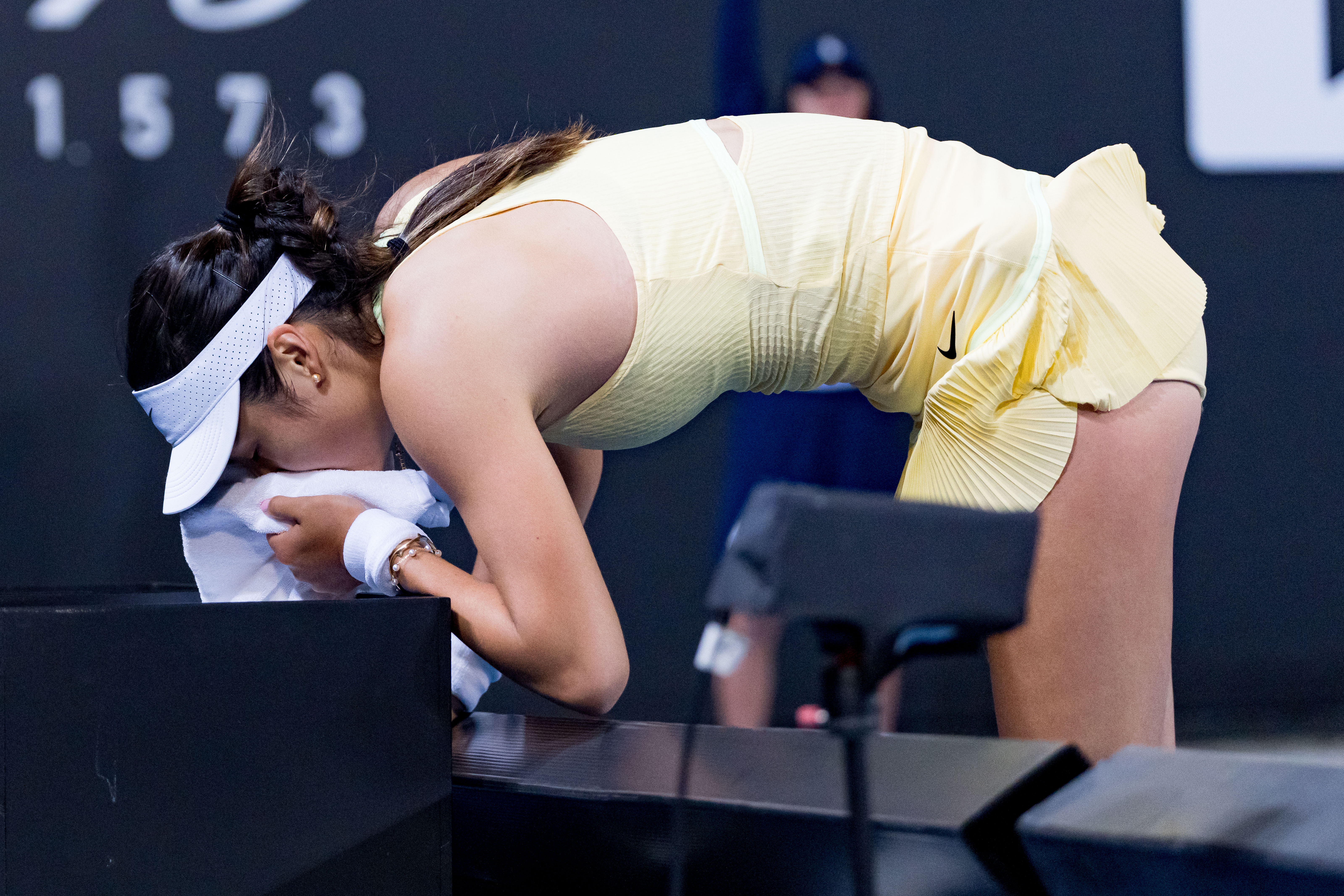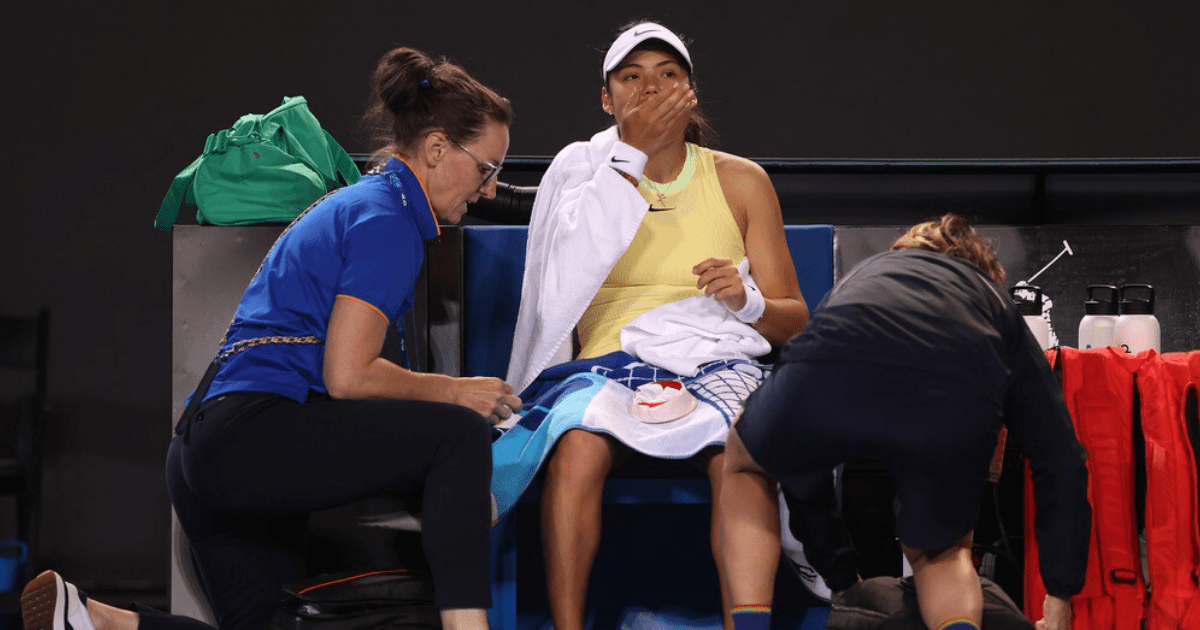Struggling with illness
Emma Raducanu reveals she battled through a stomach bug during her Australian Open match, admitting she was even "throwing up in my mouth" at times. The 21-year-old Brit felt weak and nauseous throughout the match, but managed to win the second set before ultimately losing to China's Wang Yafan.
Fighting on despite illness
Raducanu, who later vomited post-match, showed her determination by continuing to play despite feeling unwell. She had her blood pressure checked and took some pills during the match, but ultimately couldn't overcome the illness. The former US Open champion felt physically fine but struggled with the sickness.
Positive outlook for the future
Despite the setback, Raducanu remains positive about her tennis career. She expressed confidence in her mental composure during the match and believes that battling through tough situations will make her tougher and more resilient. She has high hopes for the upcoming season and will be participating in the Abu Dhabi Open in February.
Overall, Raducanu's performance at the Australian Open, despite the illness, is a promising start to the year and a good indicator of her potential for the rest of the season.

Frequently Asked Questions
Can someone who starts playing tennis later still become a pro?
It is possible to play tennis professionally at an older age, even though it may be more difficult. Success will depend on the individual’s athletic ability, work ethic, dedication, and access to quality coaching and competition. The path to professional status may be more difficult for late starters, as they will have to focus on intensive and focused training.
What type fitness training is most important for tennis athletes?
Tennis is one of the most physically demanding sports. It requires a combination between aerobic endurance and anaerobic conditioning, as well a speed, power, strength, etc. Tennis fitness training includes cardio exercises for endurance, plyometrics and explosive exercises for power and speed, weight training to build strength, as well agility drills for improving footwork and on court movement. Exercises that improve core stability and balance are essential to building the endurance and coordination needed for tennis.
How important is it for you to compete at junior tournaments if you want a career as a professional tennis player?
The junior tennis tournament is an important step towards a professional career in tennis. These tournaments are a great way for young athletes to gain experience playing against others, test their skills, and develop the necessary mental strength to play competitively. These junior tournaments serve as a springboard to higher-level events and can impact a young athlete’s ranking and visibility among coaches and sponsors.
At what age should a player begin training to have a chance at becoming a professional?
It is not necessary to wait until a certain age before you start your professional tennis career. However, beginning early can be a great advantage. Many professional tennis players begin training in their early teens. Early development allows players to build a solid foundation of skills, technique, and coordination. But it’s also important to maintain a balance between training and childhood development, to encourage a love of the sport without burnout or injury.
What role do mental and emotional aspects play in tennis training?
Mental and psychological preparation is just as important as physical preparation in tennis. The player must be able to control stress, maintain concentration, and manage the emotional highs, and lows, of competition. Common practices include visualization, goal-setting, mental rehearsals and goal-setting. A sports psychologist can assist players in building resilience, developing coping strategies to deal with pressure, and elevating their mental game so that it matches their physical prowess.
Statistics
- Strength and conditioning coaches emphasize core strength, noting that an increase in core stability can improve shot accuracy by up to 43%.
- Top tennis players typically train for 4 to 6 hours per day, divided between on-court practice and fitness training.
- Studies show that superior agility and speed among tennis players can reduce their reaction time by up to 30%, which is crucial during high-level matches.
- Persistent mental training and sports psychology can help reduce performance anxiety by up to 60%, according to sports psychologists working with elite athletes.
- Engaging in structured video analysis sessions has been shown to improve a player’s tactical decision-making by approximately 35%.
External Links
atptour.com
optimumtennis.net
wilsontennis.com
tennisfitness.com
tenniscompanion.org
How To
How to Recover Effectively After Tennis Workouts
In order to prevent injury and prepare the body for your next tennis session, it is vital that you recover effectively after intense tennis sessions. To lower your pulse rate, begin with a phase of cooling down that involves light cardio. Static stretching will promote flexibility and help reduce muscle tension. Use recovery techniques like foam rolling or massaging to relieve muscle pain and remove lactic acid. Hydration is key; replace the fluids you lose during exercise and replenish any electrolytes that may be lost. Pay attention to post-workout nutrition by consuming carbohydrates and protein to restore glycogen stores and repair muscles. Consider including rest days to your training schedule and ensure that you are getting enough rest.

